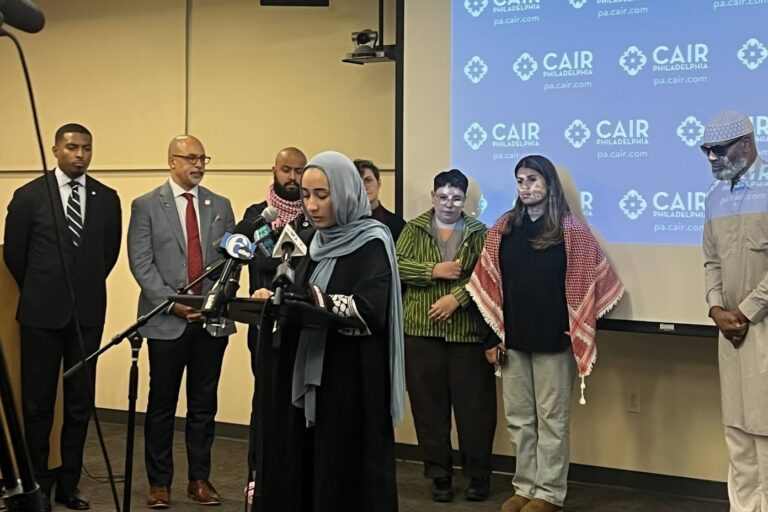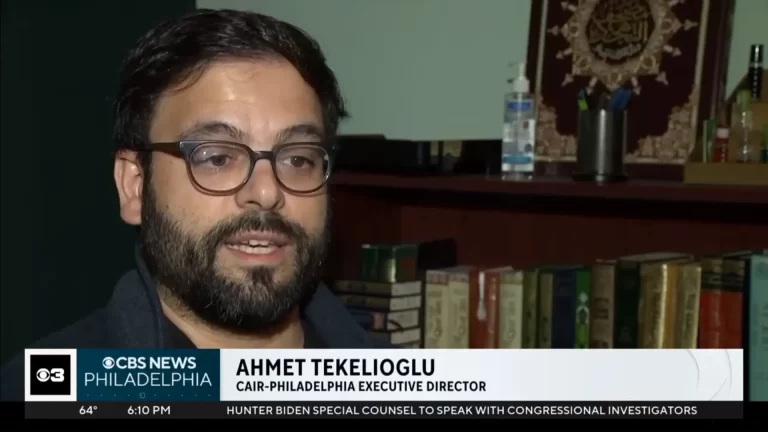
by Valerie Russ
Philadelphia Daily News, August 28, 2010
NABIH ASID stood in the sweltering kitchen of his Queen Village Pizza shop, chopping a large block of cheese into tiny shreds. Perspiration began to bead lightly on his forehead.
The kitchen was stifling last week, with heat blasting from the pizza oven inside while a steamy August afternoon blazed outside.
But Asid couldn’t slake his thirst with a sip of water, or draw strength from any of his tempting treats because he’s among the thousands of area Muslims – and hundreds of millions worldwide – fasting for the holy month of Ramadan.
“For me, it is not hard,” said Asid, 52, originally from Egypt.
He’s been fasting each Ramadan since he was 9, abstaining from all food and drink between sunrise and sunset – the majority of his shop’s hours of operation. But to Asid, the monthlong fast is simply a part of his life and his faith.
“It’s all about your belief,” Asid said. “If you believe, you will be strong. You will get help from God.”
Non-Muslims may think it especially difficult for Muslims to keep the fast when they cook and serve food for others all day. But several vendors, restaurant workers and others said they are not tempted to eat.
Some admit, however, that on especially hot days, they do feel thirsty.
Aftab Khan, who runs a hot-dog cart on Broad Street near Callowhill, said it had gotten so hot inside his metal cart a couple of days earlier this month that he began to feel dizzy.
“It’s too hot,” said Khan, 30, from Pakistan. “The sun is coming down through the window [above his head] and the stove gets really hot.”
On days he feels light-headed, Khan said, he closes up shop an hour or two early, then goes home to take a cool shower and rest until it’s time to break his fast.
“Still, I want to make it clear that I love Ramadan,” Khan said with a big smile. “I love it!”
Several local Muslims said fasting reminds them of the suffering of the poor and teaches them about humility, patience and spirituality. It’s also a time to ask forgiveness for sins.
“To me, it’s that spiritual element, where you look at the fact that there are poor people in Philadelphia and around the world, and you start to feel what they feel,” said Rugiatu Conteh, a spokeswoman for the Philadelphia chapter of the Council on American Islamic Relations.
But because Ramadan came in August this year, the days are longer than in years when Ramadan comes in winter. Muslims use a lunar calendar, with shorter months than the standard calendar, and the first day of Ramadan comes about 11 days earlier each year.
At Hanan’s House of Pita, a vending cart at 38th and Walnut streets in West Philadelphia, Hanan Hasan was busy filling lunch orders last week for students and others at her cart located near the University of Pennsylvania.
“Today was very nice,” Hasan said on a blessedly cloudy day. But the two days before were extremely hot “and I can’t drink, I can’t eat.”
Still, she doesn’t think of eating. Hasan grew up in Jordan and said, like many Muslims, she started fasting as a child.
“I have fasted all my life,” she said. “Everyone around you is fasting. My niece in Chicago, she’s only eight years old, and she is fasting this year.”
A young American-born Muslim, who is in culinary school, said that even though he fasts while cooking with classmates all day, fasting is not a problem because he’s been doing it since he converted to Islam 16 years ago.
The young man, 35, who asked that his name not be used, said outside his Germantown mosque that his classmates needlessly apologize when they sit down to eat what they’ve cooked.
“They always say, ‘Excuse me for eating in front of you,’ ” he said. “I tell them, ‘It’s OK. It’s not hard for me.’ ”
At the Almadenah Meat Market and Asalam Restaurant, two adjacent stores in a shopping center at Germantown and Wister avenues, owner Abdul Haj said that business in the market actually increases during Ramadan.
At the restaurant, which serves pizza, sandwiches and other food, the business he loses while Muslims are fasting during the day just moves later and things pick up at night. “People come to break the fast here,” said Haj, a Palestinian.
“Business always gets better during Ramadan,” said his nephew Osama Haj, who works in the meat market. “When you’re hungry [all day], people buy more food.”
Asid, the pizza shop owner, has owned his restaurant at 4th and Queen streets for 20 years.
Asid’s wife, who didn’t want her name published, said she hasn’t wanted to eat, but she has felt thirsty.
“For me, it is hard,” she said. “It is so hot and I cannot drink.”
But Asid said that even though he works around food all day, “I don’t think twice about eating.
“The food is nothing,” he said. “It is about spirituality. It is about having a clean mind and a clean body. Ramadan is a gift. If you’re honest and truly fasting for the right reasons, after the month is over, you will be a better person.”





